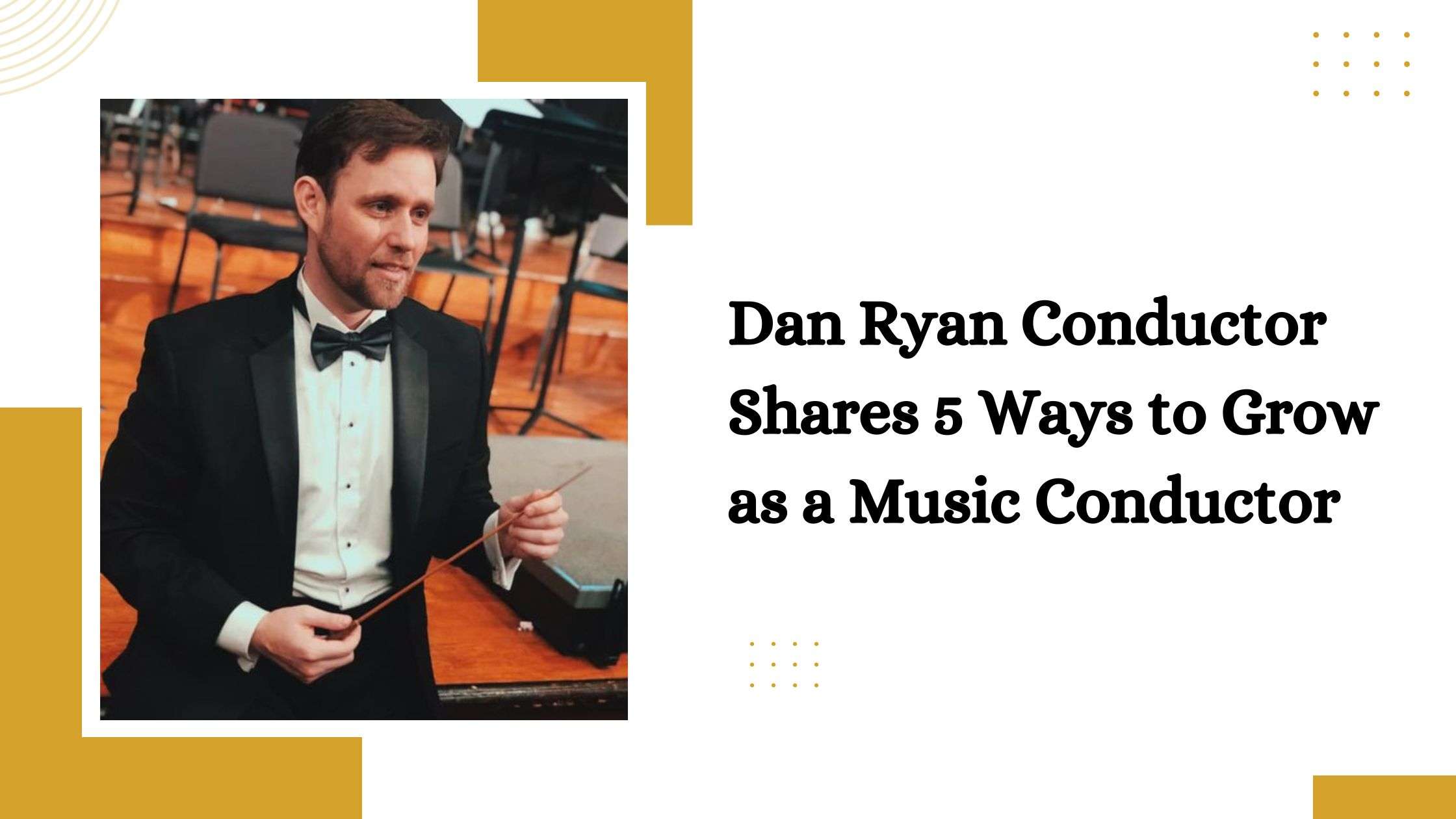Dan Ryan Conductor, Composer, and Arts Educator, is known for his dynamic leadership and innovative programming. Dan Ryan Conductor leads the Colleges of the Fenway Orchestra and Chorus and co-founded The Gena Branscombe Project. Dan Ryan Conductor shares 5 meaningful ways to grow as a music conductor, drawn from years of experience across concert halls, classrooms, and community stages.
From deepening musical interpretation to building rehearsal trust and leading beyond the podium, His insights will resonate with conductors at any level. This is a roadmap for evolving craft, inspiring ensemble, and becoming a more impactful musical leader.
1. Listen Carefully to the Ensemble
One of the most important habits for a conductor is learning to truly listen. Listening means paying close attention to every part of the group, the strings, winds, percussion, voices, or any other instruments. Notice how they sound together, how balanced they are, and how clearly the musical ideas are being expressed.
Instead of stopping the group too often, it helps to let them play or sing through a section. This gives the conductor a better sense of what is happening naturally and what needs guidance. By doing this, the conductor also shows respect for the musicians’ own musical choices and helps create a more supportive atmosphere. Good listening leads to better decisions in rehearsal and performance. It also helps the conductor lead with clarity and build stronger trust within the group.
2. Understand the Music Fully
A conductor must deeply understand the music they are leading. This includes knowing how the different parts fit together, when certain instruments or voices are featured, how the piece develops from beginning to end, and what emotions or ideas it is trying to express. Before any rehearsal, it’s helpful to spend time thinking about the shape of the music.
Understanding the music also includes learning about the composer, the period, and the meaning behind the piece. When a conductor is clear about the music’s message and flow, it becomes easier to guide the group in the right direction. This leads to more expressive and connected performances.
3. Build Strong Relationships with Musicians
Being a conductor means leading people, not just music. A strong connection between the conductor and the musicians creates a better environment for everyone involved. When musicians feel respected, valued, and supported, they are more open to learning and more willing to give their best effort.
A good conductor takes time to learn about the ensemble, pays attention to how each section is doing, and communicates clearly. Simple things like making eye contact, giving helpful feedback, and creating a relaxed but focused rehearsal space can go a long way in building trust. Strong relationships also help when challenges come up. Whether it’s a difficult passage or a mistake in rehearsal, a group that feels safe and respected will be more likely to work together to fix the problem without tension or frustration.
4. Watch and Learn from Other Conductors
One of the most effective ways to grow is by observing other conductors. Every conductor has a different way of leading; some use bigger gestures, some speak more, some let the music flow freely. Watching a variety of styles helps newer conductors learn what works and what doesn’t in different situations. Pay attention to how conductors use their hands, how they start and stop the group, how they solve problems, and how they bring the music to life.
Watching rehearsals or performances in person is ideal, but even videos can be helpful. This type of learning also helps conductors reflect on their approach. They may discover new ideas, techniques, or ways of thinking that improve their own work. It also reminds conductors that growth never stops, no matter how much experience they have.
5. Keep Learning and Exploring
The best conductors are always learning. Growth can come from many places, attending workshops, working with different kinds of ensembles, trying out new types of music, or studying different cultures and musical traditions. Every new experience brings fresh ideas and strengthens musical understanding. Learning doesn’t have to be formal. Even reading about music history, listening to great performances, or talking with other musicians can lead to growth. Exploring different kinds of music, classical, jazz, folk, or contemporary, also helps conductors become more flexible and creative.
It’s also important to learn more about leadership, time management, and communication. These skills help a conductor organize rehearsals, guide musicians clearly, and handle challenges with calm and confidence. A conductor who stays curious and open-minded is more likely to inspire the group and bring out their best performance.
visit: https://www.provenexpert.com/e..../dan-ryan-conductor/
#danryanconductor
#modernmusic
#orchestraleader
#choraldirector
#musicdirector

 News Feed
News Feed  Albums
Albums  Popular Posts
Popular Posts  Memories
Memories  Pokes
Pokes  Blog
Blog  Market
Market  Directory
Directory  Events
Events  Games
Games  Jobs
Jobs  Offers
Offers  Find friends
Find friends  Common Things
Common Things  Fundings
Fundings